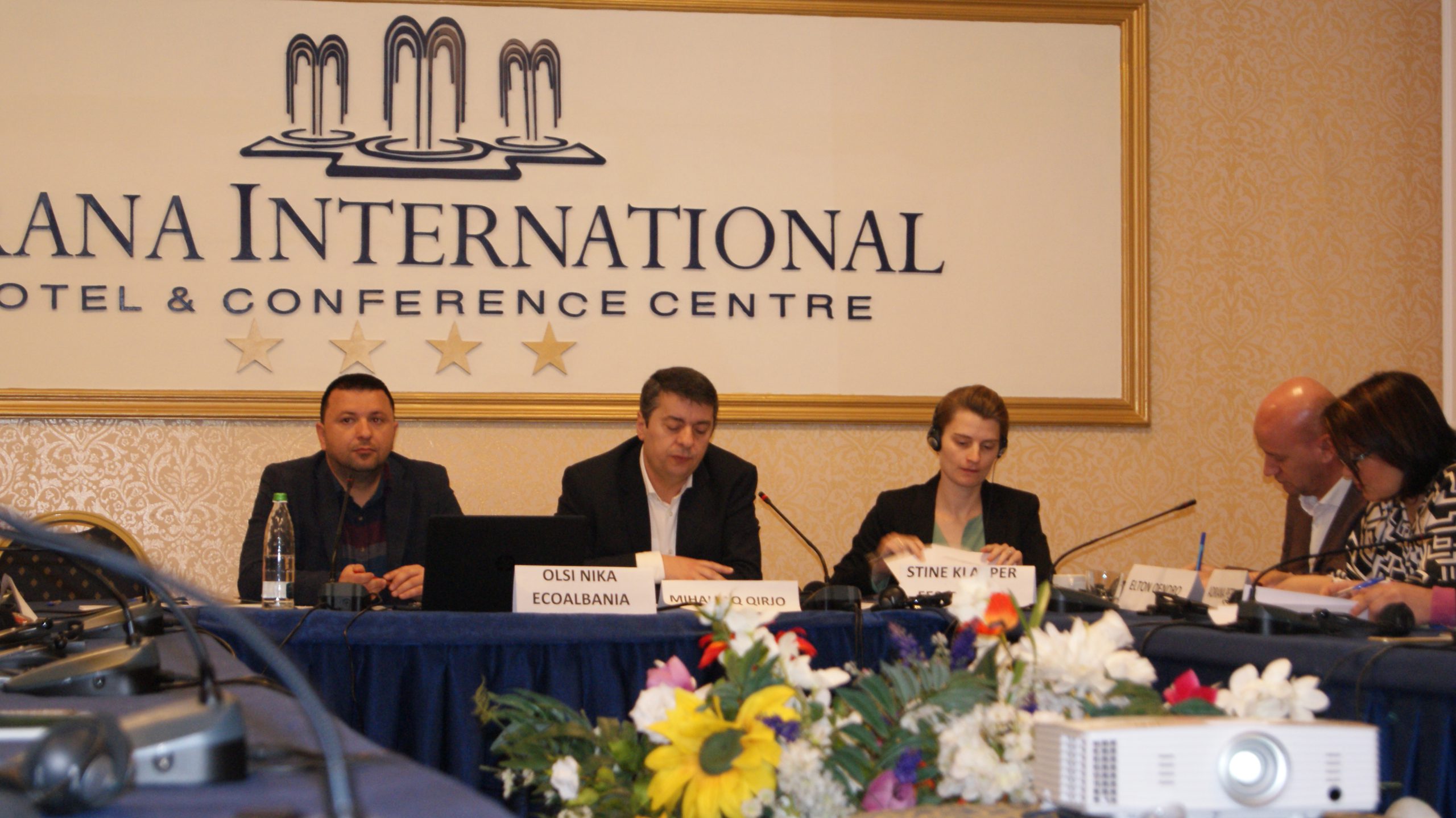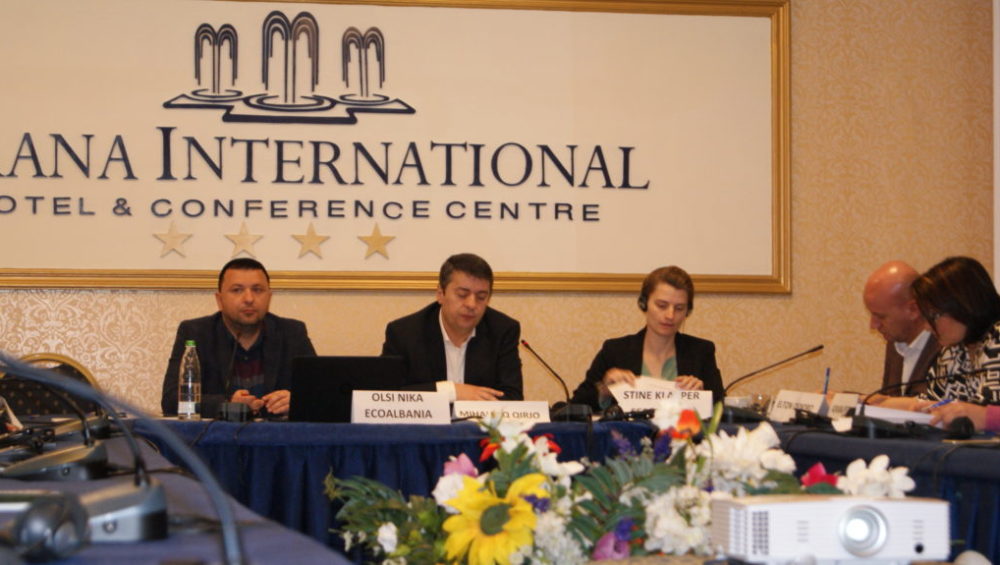Tirana, 4 February 2020. EcoAlbania’s latest initiative to develop a methodology for the property assessment of environmental crime in protected areas in Albania was presented in Tirana. The report gives the current situation of monetary valuation of illegal logging considering a case study in Mali me Gropa – Bizë – Martanesh Protected Area. This case study can serve as the start of a dialogue on the collection of accurate data and knowledge on environmental assessment related to environmental crime in Albania.
In the context of the European Union accession process and as a result of certain obligations deriving from the Stabilization and Association Agreement, Albania has made progress in aligning its legal and institutional framework with the EU. The improvement of the criminal code and national sectoral laws with a view to approximation with the EU laws, makes it necessary to reflect the spirit of the law also in the development of methodologies for the monetary evaluation of the relevant offenses. “Seeing as very simplified the current method and the need to introduce other important environmental elements such as biodiversity values, aesthetic values, or even operational and administrative costs, we have taken this initiative to assist relevant institutions, which deal with environmental crime and promote a fairer assessment of the damage caused by environmental crime ”, said Olsi Nika, Executive Director of EcoAlbania.

There is few or lack of information on the damage caused by illegal logging in protected areas in our country. However, according to the general prosecutor report, during 2018 environmental crimes account for only 0.78% of the total crimes committed nationwide. In terms of quantity, there were 247 registered cases on environmental crime, where 57.8% consist of forest crimes and illegal logging. In this context, monetary valuation of environmental damage is also important even if only from the perspective of compensation. “This is an important step of the civil society that we are happy to support,” said Stine Klapper, Executive Director of FES – Tirana.
Even in European Union countries, there is no common methodology accepted by all. Moreover, lack of accurate quantitative and qualitative data makes it difficult to develop an overall methodology for environmental crime, given the different nature of the offenses that constitute environmental crime.
However, our findings can help open up a wider debate and conduct more in-depth studies on the cost, effectiveness, and economic impact of illegal logging and environmental crime in general in order to ensure more successful prevention.







